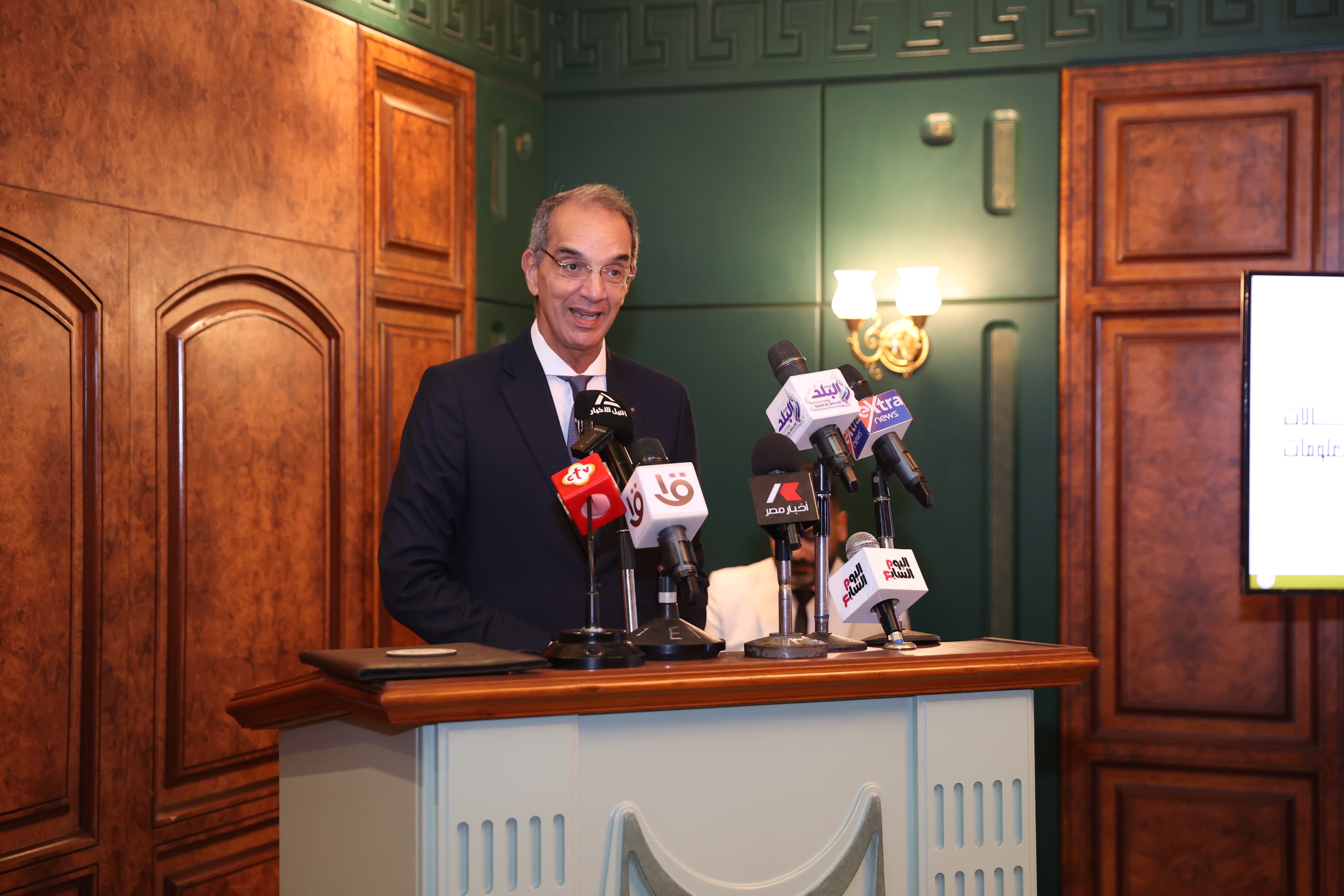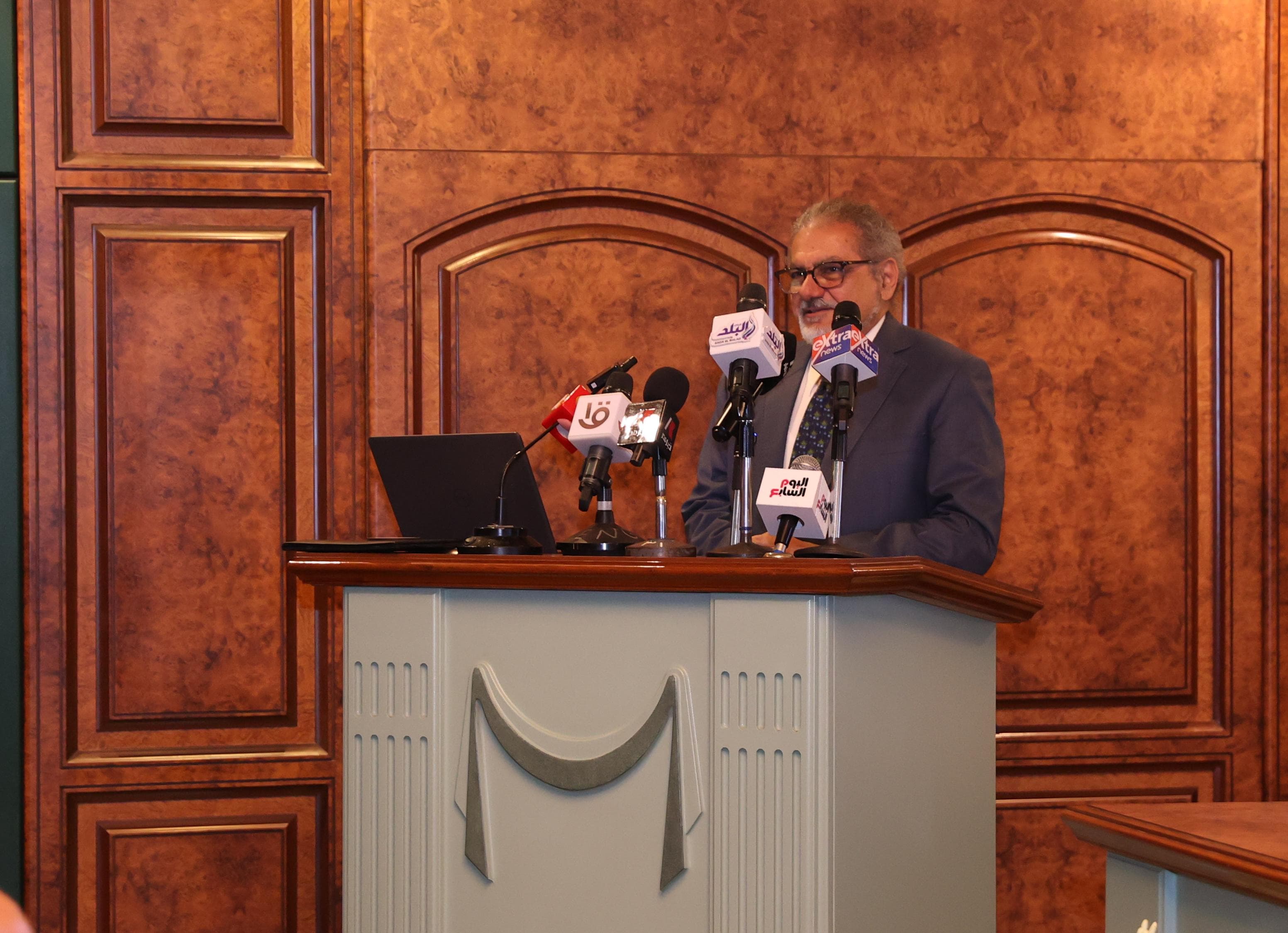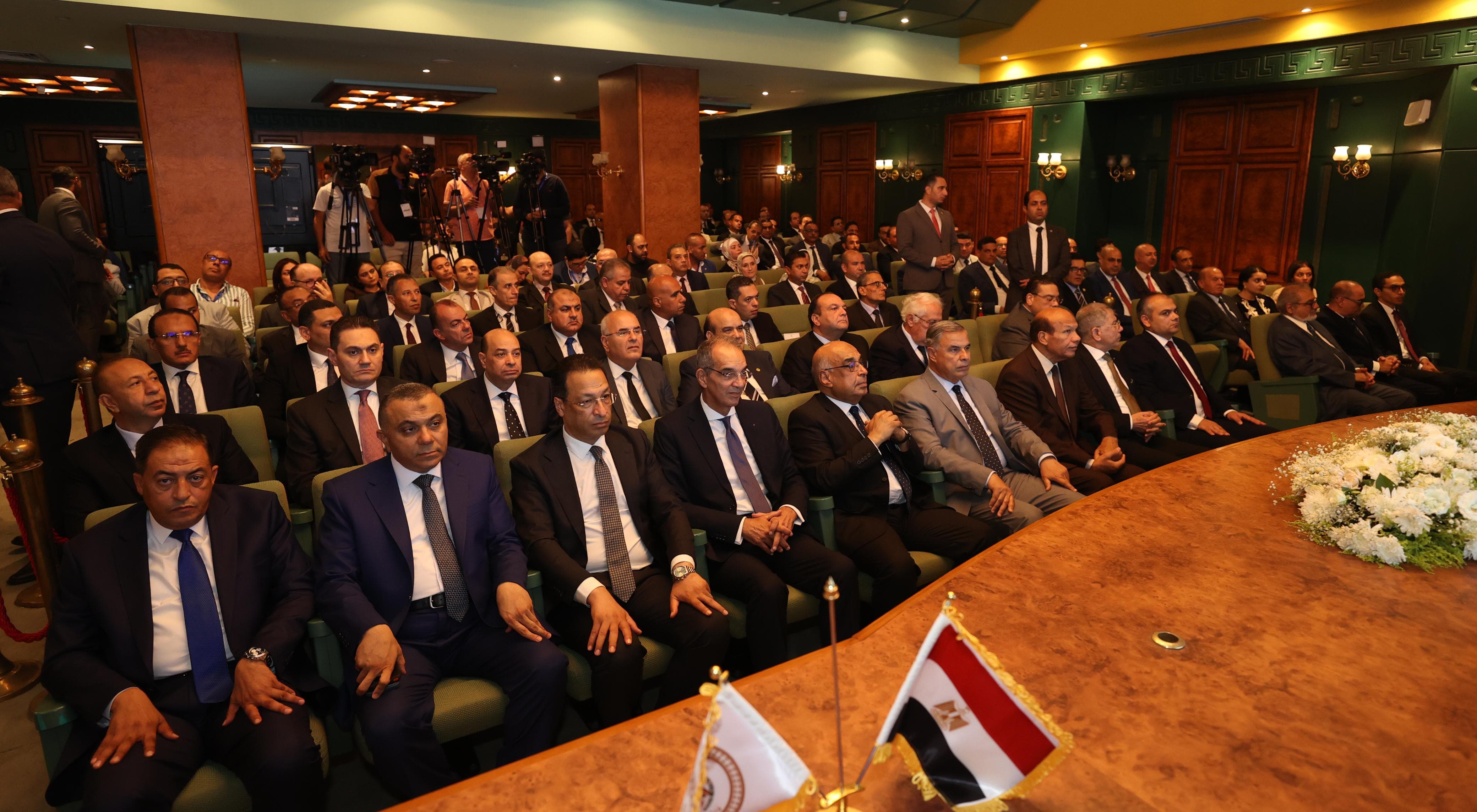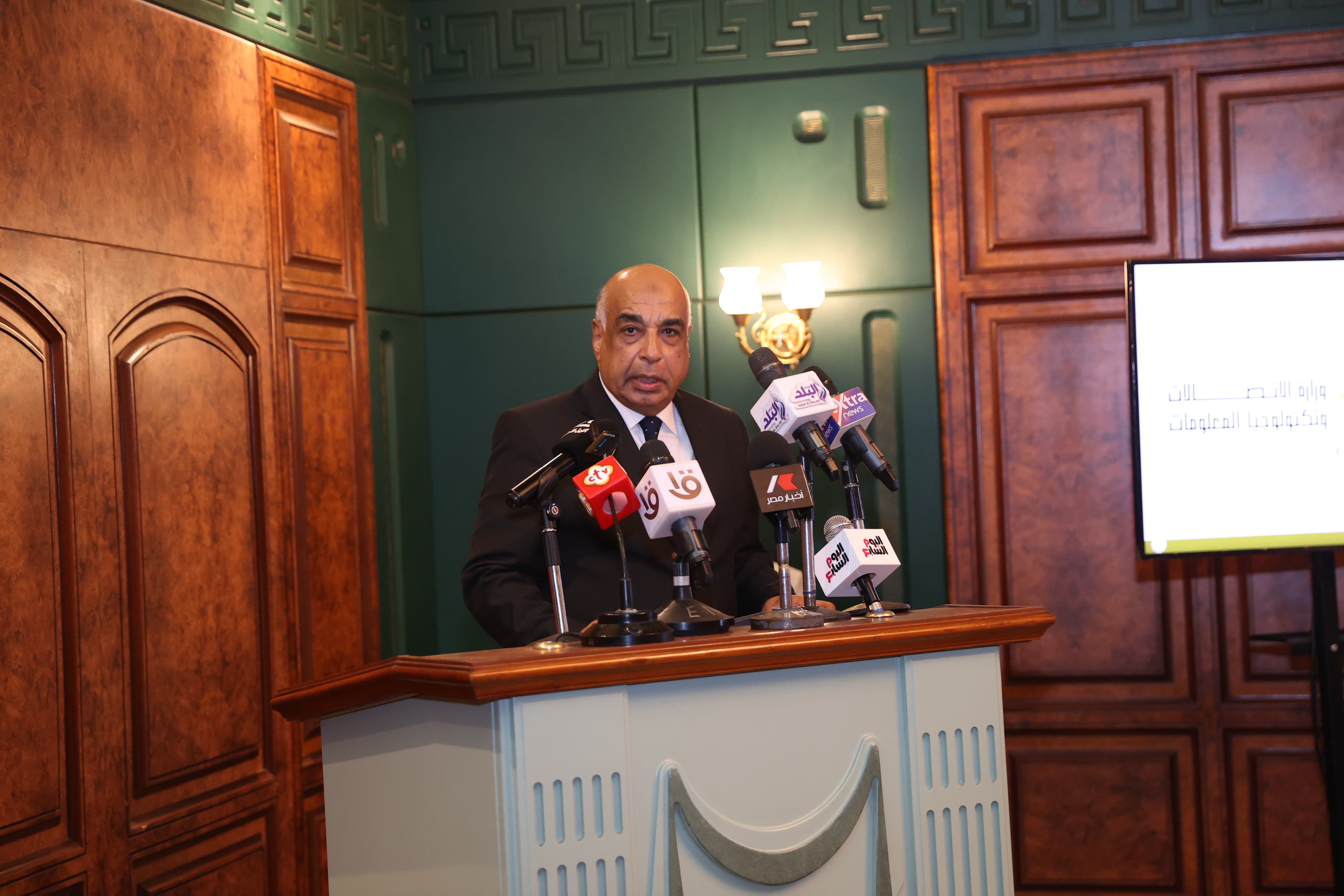ICT, Justice Ministers Introduce Remote Criminal Litigation System
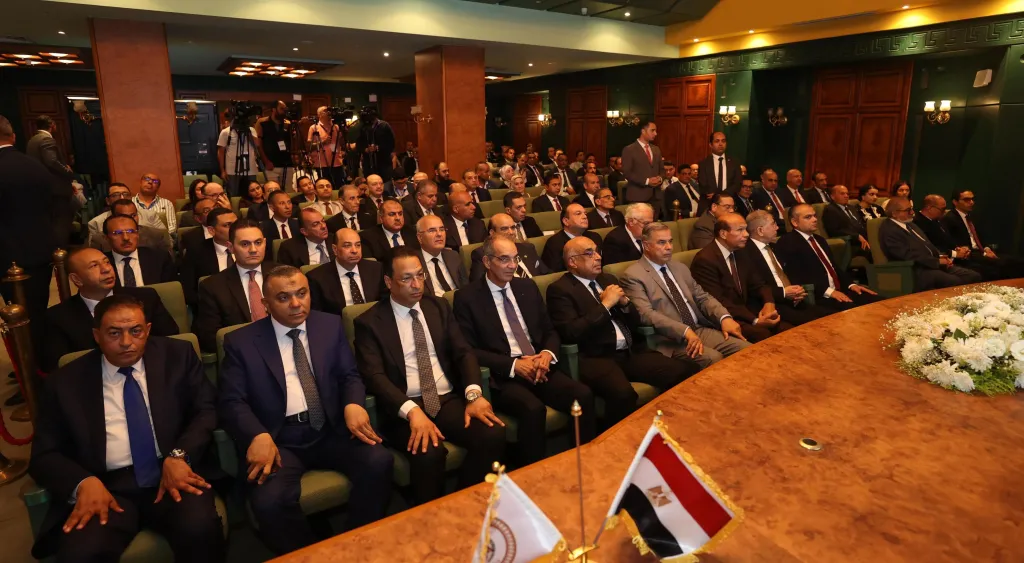
The Minister of Communications and Information Technology Amr Talaat and the Minister of Justice Adnan El-Fangary have introduced the remote criminal litigation system at East Alexandria Court. The system enables lawyers to remotely attend hearings on the extension of pre-trial detention, allowing them to present their defenses for detainees without physically appearing in the courtroom. This step complements the remote pre-trial detention extension process, carried out from the detainee’s place of detention.
The launch ceremony was attended by Governor of Alexandria Ahmed Khaled Hassan Saeed, President of the Alexandria Court of Appeal and Member of the Supreme Judicial Council Zakaria Youssef Hassan Harzallah, Vice ICT Minister for Infrastructure and Digital Transformation Raafat Hindy, Assistant Interior Minister for Legal Affairs Ahmed Youssef El-Solaia, and Head of the Applied Innovation Center (AIC) Ahmed Tantawy, alongside senior officials from the Ministries of Communications and Information Technology (MCIT), Justice, and Interior, the Public Prosecution, as well as other judicial bodies and authorities.
This implementation aims to roll out and expand this mechanism nationwide, capitalizing on its efficiency and effectiveness in daily operations to cover all criminal and economic courtrooms. The new system also leverages Artificial Intelligence (AI) to convert oral pleadings, judges’ rulings, and defendants’ statements into written text, transcribing speech into editable records to automate hearing minutes and eliminate manual note-taking.
The launch ceremony commenced with a video presentation showcasing the technical services offered by the remote litigation system, along with the digital services of the Ministry of Justice and the Foreigners Marriage Office. It also featured a demonstration of the speech-to-text software and remote criminal litigation system.
In his remarks, the ICT Minister emphasized that this system marks a leap forward in the ongoing cooperation between MCIT and the Ministries of Justice and Interior to implement mechanisms for filing criminal lawsuits in line with the demands of the digital era. He underlined this cooperation as a bright milestone in building the justice system within Digital Egypt.
The ICT Minister explained that within just one year, more than 850 fiber-optic cables were installed in courtrooms, correctional facilities, and police stations to activate the remote pre-trial detention renewal system, helping save effort and reduce costs. In addition, the system has been equipped with 1,530 video conferencing units, enabling judges to communicate with all parties involved in a specific case, regardless of their location, and hold a single hearing simultaneously across multiple venues.
Talaat highlighted that the digital infrastructure readiness has been reinforced to enable the remote engagement of lawyers, judges, and witnesses within a secure environment that meets the highest cybersecurity standards. He noted that the system also incorporates speech-to-text conversion for the facts of the hearing, powered by speech recognition and AI technologies. He pointed out that the system was entirely developed by AIC of MCIT, designed by Egyptian engineers, and has achieved an accuracy rate exceeding 96%.
In his speech, the Minister of Justice underscored that the system marks a turning point, where Egypt’s distinguished judicial heritage is not only preserved but also enriched with new chapters of innovation and leadership, paving the way for litigation procedures to keep pace with tech advancements. He noted that this system represents a pioneering strategic step toward modernizing the criminal justice system and its substantive safeguards, without the need for physical presence.
This system, the Minister of Justice stated, shortens timelines, reduces burdens, safeguards rights, preserves freedoms, and ensures uninterrupted judicial procedures under any emergency and unforeseen circumstance. He highlighted that it also facilitates litigation procedures, achieving swift justice—the ultimate goal pursued by the Ministry—in line with the directives of President Abdel Fattah El-Sisi to facilitate litigation procedures and advance toward inclusive digital transformation while protecting rights and freedoms.
Furthermore, El-Fangary commended the dedicated efforts and fruitful cooperation of MCIT and the Ministry of Interior, not only in this project but also across numerous projects and achievements. This, he added, reflects the strong cohesion of state institutions and the deep-rooted institutional awareness that the judicial process is an inclusive system in which efforts are unified, with the paramount goal of safeguarding Egypt’s assets and raising its flag high.
In a similar vein, the two ministers attended a virtual hearing for the remote pre-trial detention extension process, in which the defendant and the lawyer appeared remotely before a circuit at East Alexandria Court.
The launch of this system is part of the Ministry of Justice’s preparation to implement the new Criminal Procedure Code, approved by the House of Representatives in its latest session. The code regulates remote litigation procedures for criminal cases.
https://tinyurl.com/24fzv6nz
